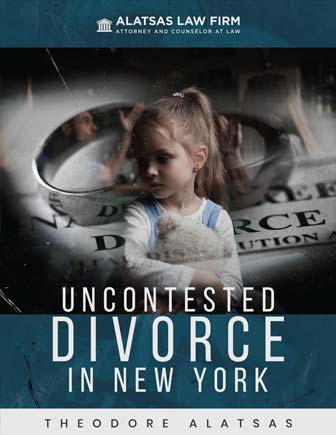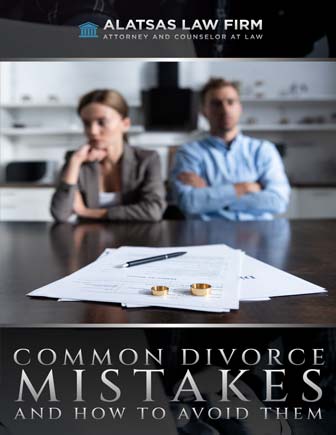Although the topic of divorce is not taboo as it was just a couple of generations ago, there are various misunderstandings about it. Not all divorces are the same, and experienced New York divorce attorneys should be contacted if divorce seems on the horizon. From the expense involved to the statistics of divorce, below are ten commonly accepted divorce myths that have proven to be just plain wrong by both experts and researchers alike. 
Myth #1: 1 Out of Every 2 Marriages Ends in Divorce
That all-too-often cited “50% of marriages end in divorce” statistic is not exactly accurate. The discrepancy is in how that statistic was calculated: it factors in those who have been married multiple times, thus, skewing the numbers. In fact, the National Marriage Project found that the divorce rate has been decreasing since the 1980’s.
Myth #2: Keeping the House in One Name Means it Will Always Have Sole Ownership
This may not be true, depending on the specific facts of the divorce. A spouse who owns a property prior to marriage but continues to pay the mortgage with marital funds runs the risk of giving the other spouse interest in the home. Similarly, if one spouse adds value to the home, either through financial investment or sweat equity, the property may be subject to marital distribution.
Myth #3: The Process is Expensive
Contrary to many news headlines on divorce, the process is not as costly as one would think – especially if the parties involved are amicable and can come to agreements on the split without having to involve a judge at every turn. If a separation is inevitable, then mediation – as opposed to litigation – is an alternative dispute resolution available that often is quicker and less expensive.
Myth #4: The Mom Always Gets Custody of the Kids
Whether or not the general population believes this should be the case, according to family law even if the mother is the primary caregiver of the children throughout the duration of the marriage both mother and father are entitled to equal time with the children. Under the “best interest of the child” standard that courts follow, if a parent is deemed unfit, primary custody will not be awarded.
Myth #5: America Has the Highest Divorce Rate Worldwide
Although the United States is quite high on the list when compared to other nations, the United Nation’s divorce statistics place us behind other nations such as Russia, Ukraine and the Cayman Islands.
Myth #6: Second Marriages are More Successful
Many presume because lessons learned from the first marriage will logically increase the success rate of a second marriage. Unfortunately, this has proven not to be true. According to Psychology Today, second marriages have a 67 percent chance of failing and third marriages have an even higher failure rate of 73 percent.
Myth #7: Living Together Prior to Marriage Reduces the Odds of Divorce
In fact, studies show the opposite of this is true. According to a National Survey of Families and Houses, marriages that began in cohabitation are twice as likely to fail within the first 10 years of the relationship compared to first marriages.
Myth #8: Ex-Wives Are Always Awarded Alimony
Alimony is awarded depending upon the circumstances of the case including length of marriage, contributions to the marriage and ability to obtain employment. In general, permanent alimony is awarded in a situation where a soon-to-be ex-wife has been out of the work place for years and, consequently, her skills are not competitive with other job seekers.
Myth #9: You Have to Get a Divorce in the Same State in Which You Were Married
Generally, in order for courts to have jurisdiction – or the legal authority to oversee a divorce case – at least one spouse must be a legal resident of the state in which divorce is being sought. State law governs the requirements needed to meet residency.
Myth #10: Equitable Distribution Means Everything Will be Split 50-50
Contrary to popular belief, equitable does not mean equal. Courts have much discretion when dividing marital assets, and equitable distribution takes into account each spouse’s financial circumstances and divides property in a fair – but not necessarily even – manner.
Contact Divorce Attorneys Alatsas Law Firm.
If you or someone you know is considering divorce, contact an experienced New York divorce attorney today. Divorce can be a difficult and stressful time in one’s life; the family law attorneys at Alatsas Law Firm understand the sensitivities involved in this process and will strive to advocate for your rights, pursuing the best possible outcome. Call (718)-233-2903 to schedule a free initial consultation.







